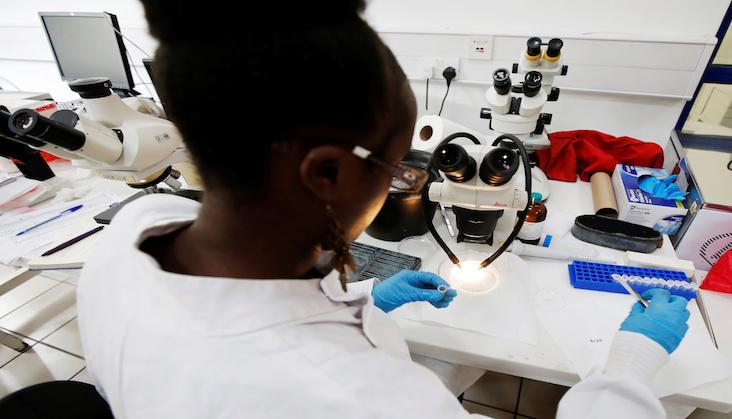Africa-Press – Mauritius. As Africa counts the cost, it needs to look beyond the ‘back to normal’ approach, and take this opportunity for a genuine sustainable restart of the economy.
The worst-case cost of the pandemic to the global economy at a nightmarish $82 trillion over 5 years by the Centre for Risk Studies at the University of Cambridge.
While, comparatively, Covid-19 death rates have been low and share of recoveries high in Africa, the estimated losses to African economies range from $37bn – $79bn by the World Bank, to $35bn – $100bn by the African Development Bank, and as high as $275bn by the World Economic Forum.
Human induced climate change is arguably the most systemic threat to life existence on planet Earth. It exacerbates existing risks and creates new risks for human and natural systems.
Africa is facing the sharp end of climate change. Multiple biophysical, political, and socioeconomic stresses interact to constrain the continent adaptive capacity to climate change.
The Food and Agricultural Organization projected that climate change may result in the loss of 2–7% of GDP by 2100 in parts of sub-Sahara Africa, 2–4% and 0.4–1.3% in West and Central Africa, and Northern and Southern Africa, respectively.
The reduction in global carbon emissions from confinement measures to flatten the curve of Covid-19 pandemic have led to calls to integrate climate action into Covid-19 recovery strategies.
Avoiding the worst impacts of climate change required keeping global warming well below 2°0C (3.6F) set in the landmark Paris Agreement of 2015. How low-carbon transition considerations will be integrated into post-Covid-19 recovery plans remains subject to ideological discussion.
Bioeconomy has been identified as a new perspective for solving the geopolitical challenges that the world is facing in the twenty-first century, including climate change.
The Global Bioeconomy Summit defined bioeconomy as the production, utilization and conservation of biological resources, including related knowledge, science, technology, and innovation, to provide information, products, processes and services across all economic sectors aiming towards a sustainable economy.
Operationally, bioeconomy replaces non-renewable resources with sustainably produced renewable biological resources to produce food, fuel, fine chemicals, and other substances with the goal of achieving sustainable wellbeing.
The oft-cited market potential of bioeconomy by the World Business Council for Sustainable Development is $7.7 trillion opportunity for business by 2030.
Despite its well-discussed and highly-accepted potentials as new economic wave, the adoption of bioeconomy is quite muted in Africa. A recent study of the readiness of African countries to adopt bioeconomy showed a poor state across the continent.
This was largely due to the poor state of investment and skills in Research and Development, the absence of latest technologies, poor industrial production process, poor university-industry collaboration, and poor institutional arrangements.
The highlight of the study was that South Africa is the best equipped country to adopt bioeconomy on the continent. Consequently, developing national and regional strategies is an important step in developing Africa’s bioeconomy.
To further effectively institute bioeconomy for sustainable post-Covid-19 recovery in Africa, relevant stakeholders must collaborate to improve the level of training and skills of the workforce, support R&D activities, build and improve infrastructures, entrench innovation ecosystems, develop value chains across diverse sectors of bioeconomy, and improve general governance.
While no one knows yet what life after the coronavirus will look like, the pandemic offers a unique opportunity to transform African economies and put forward the change the society needs to create a sustainable and desirable future.
Competitive, ecologically sustainable and socially acceptable bioeconomy is desirable in Africa to ensure future resource security and sustained livelihoods.
For More News And Analysis About Mauritius Follow Africa-Press







